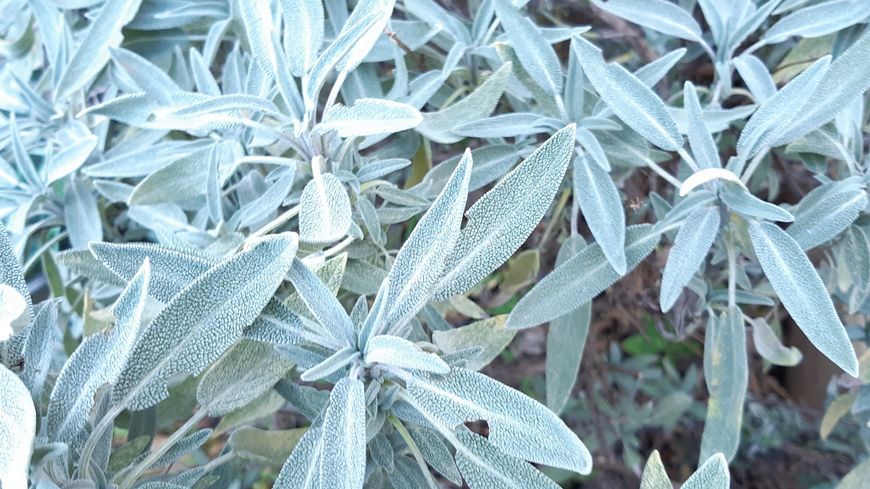
AROMATIC AND
MEDICINAL PLANTS
Whether in a garden, on a terrace or a balcony, or even indoors, we all want to have aromatic plants available at home if we like to cook.
Grown in the ground or in planters, they perfume the garden or the terrace and help to season dishes and to make infusions or ointments. Some of them also have medicinal virtues that we had forgotten. Plants have been used to heal ourselves since antiquity and this natural medicine is now experiencing a revival of interest. The profession of herbalist, which had almost disappeared, could make a comeback… Sedative, stimulating, antiseptic, anti-inflammatory, why not treat small ailments with these plants?

Sage is an easy plant to grow, it just needs sun. It has digestive, diuretic and stimulating virtues. In infusion, it helps digestion.
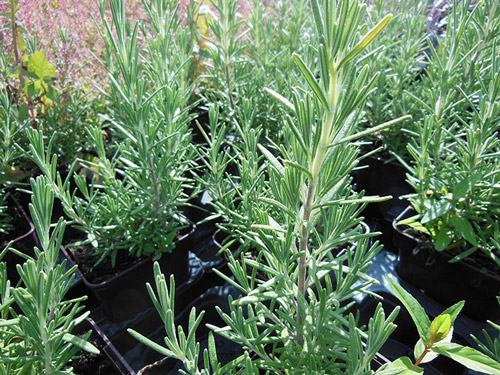
Rosemary, this Mediterranean shrub with evergreen foliage can be grown in the ground as well as in pots. It has been used for medicinal purposes for thousands of years. It facilitates digestion, helps with elimination functions and strengthens the body’s immune system. Rosemary flowers are used to make infusions. In cooking, it goes very well with lamb, poultry and vegetables but also with sweet fruits such as apricot, peach and strawberry.
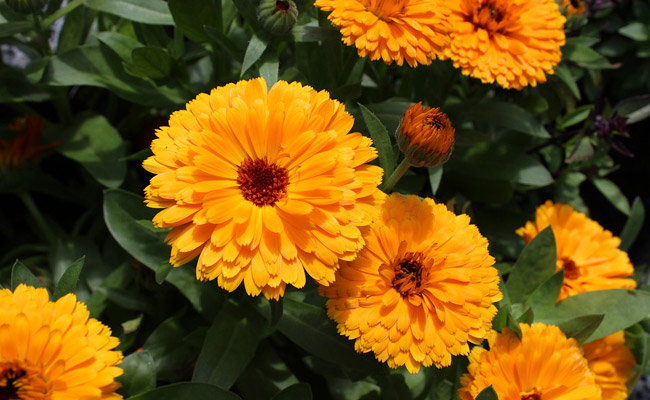
The garden marigold with its colorful flowers will not only embellish terraces and gardens but will also pleasantly decorate dishes and salads.
The marigold, consumed in infusion helps the digestion and is used in the preparation of ointments to calm the irritations. Its fresh leaves can be used in cataplasm. It grows everywhere as long as it is in the sun.
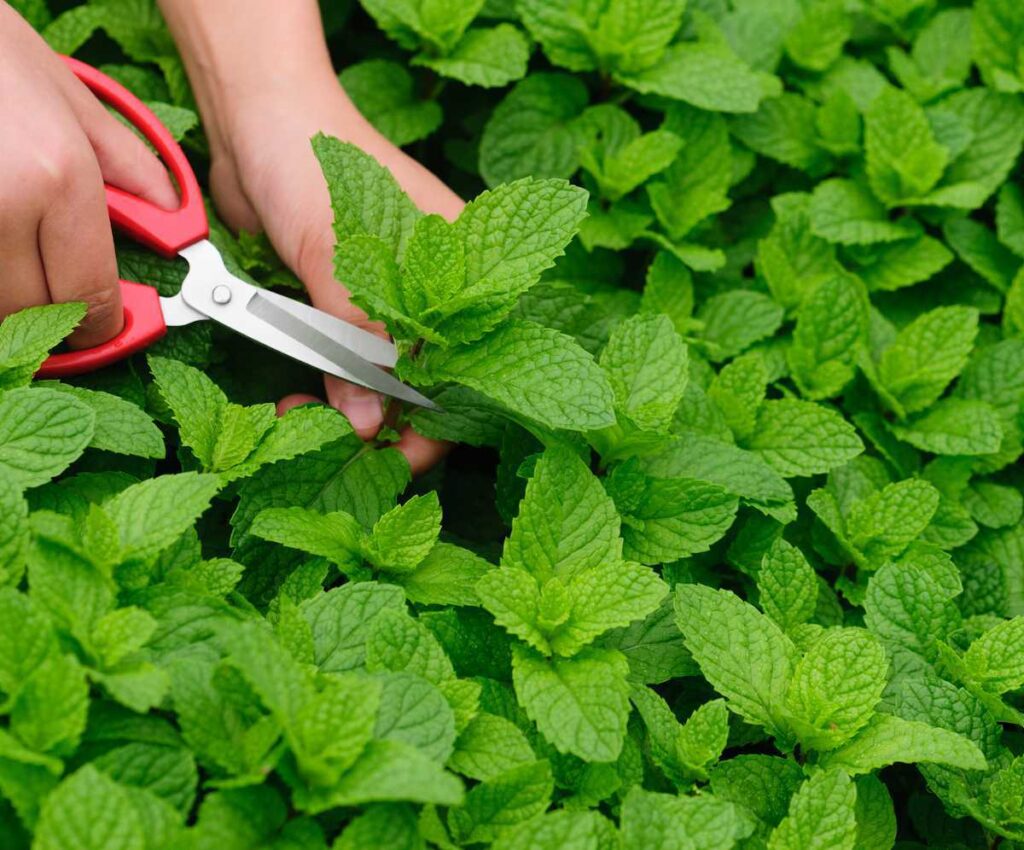
The mints, whether green or peppery, have the same digestive properties in infusion. They are also antispasmodic, tonic and recommended in case of migraine. They like rich and fresh soils and prefer the shade.
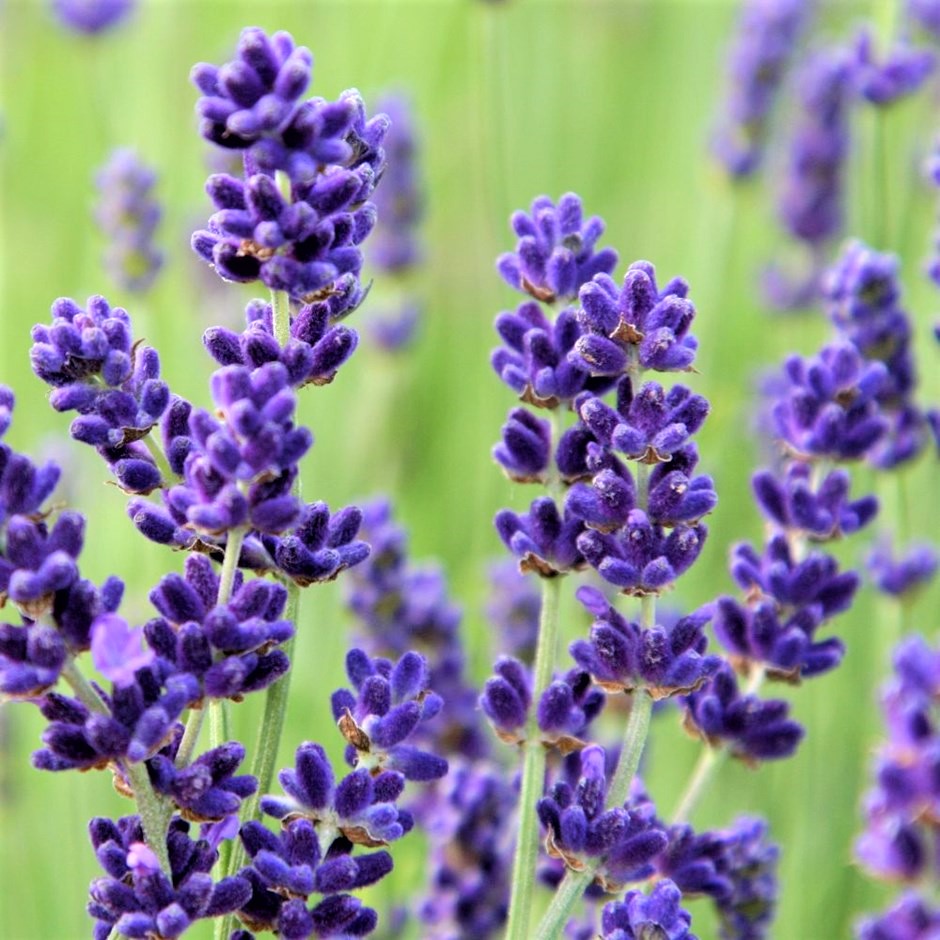
Lavender originates from the Mediterranean regions and is appreciated for its smell. It has antiseptic and healing virtues when used externally as an essential oil preparation. In herbal tea, it is sedative, antispasmodic and promotes digestion. It likes calcareous grounds and the sun.
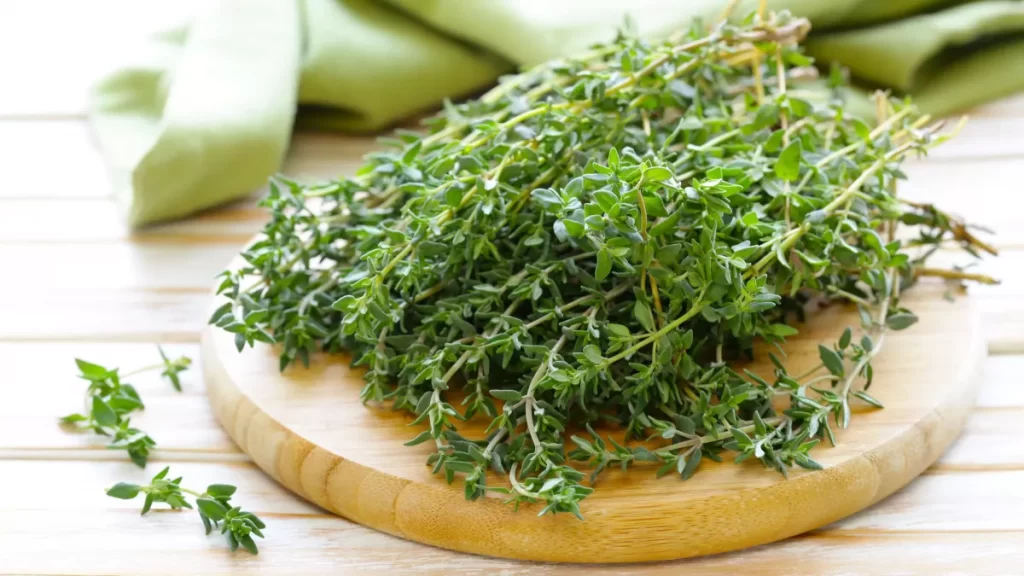
Thyme is an aromatic and medicinal plant that grows naturally in the Mediterranean regions. Taken in infusion, it relieves respiratory and intestinal affections. It stimulates immunity and is also a very good anti-infectious. The diluted essential oil of thyme used externally has antimicrobial and antiseptic properties.
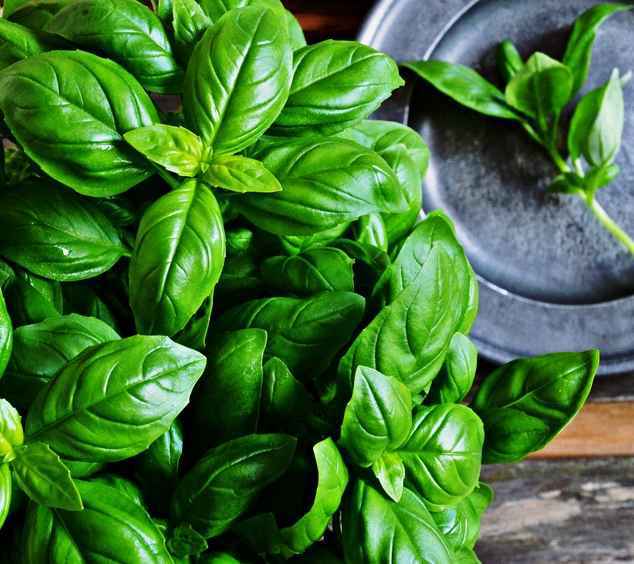
Basil can be grown in pots, both indoors and outdoors. It goes deliciously with salads, pasta and tomatoes. Basil does not tolerate dryness and needs to be watered regularly. The tomato and the basil do not only get married in cooking but also make good household in gardening. Basil stimulates the growth and improves the quality of the tomato. In organic agriculture, basil is planted at the foot of the tomato plants so that they can benefit from its benefits. Basil is rich in antioxidants, vitamin K and iron. It has antibacterial and digestive virtues.
Growing aromatic plants requires little space, little investment and little time, but allows you to have the necessary herbs for a fragrant kitchen and to treat small ailments naturally. It would be a real shame not to take an interest in the benefits of plants and not to take advantage of them.
Morearticles

AFRICAN TRADER
August 10, 2023

THE CENTRAL BLOCK
August 10, 2023

A KITCHEN AT ITS BEST
August 10, 2023
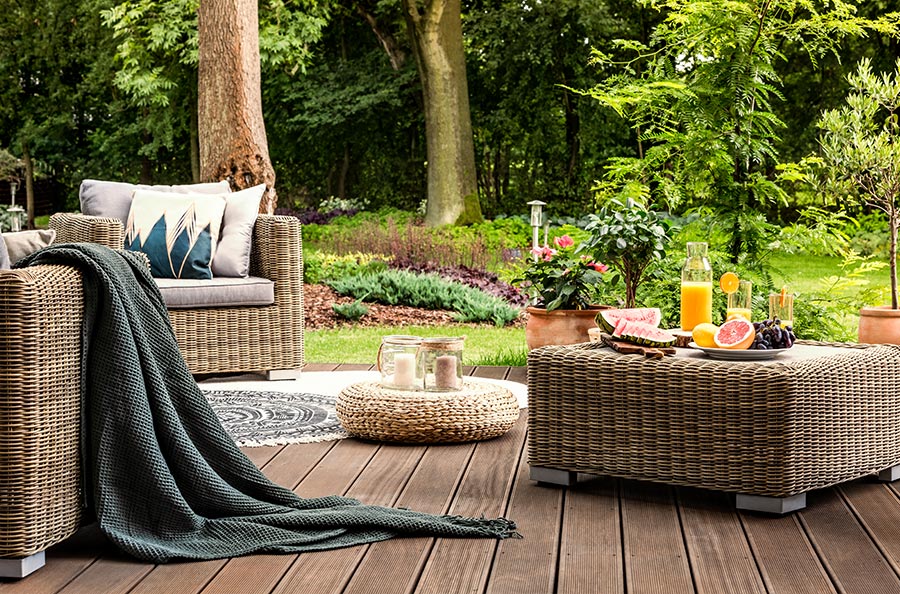
THE RETURN OF RATTAN
August 10, 2023




